ASTM A335 P5
Alloy seamless pipes
ASTM A335 P22 Seamless Steel Pipes shall be suitable for bending, flanging, and similar forming operations, and for fusion welding.
Each length of pipe shall be subjected to the hydrostatic test. Also, each pipe shall be examined by a non-destructive examination method in accordance to the required practices.
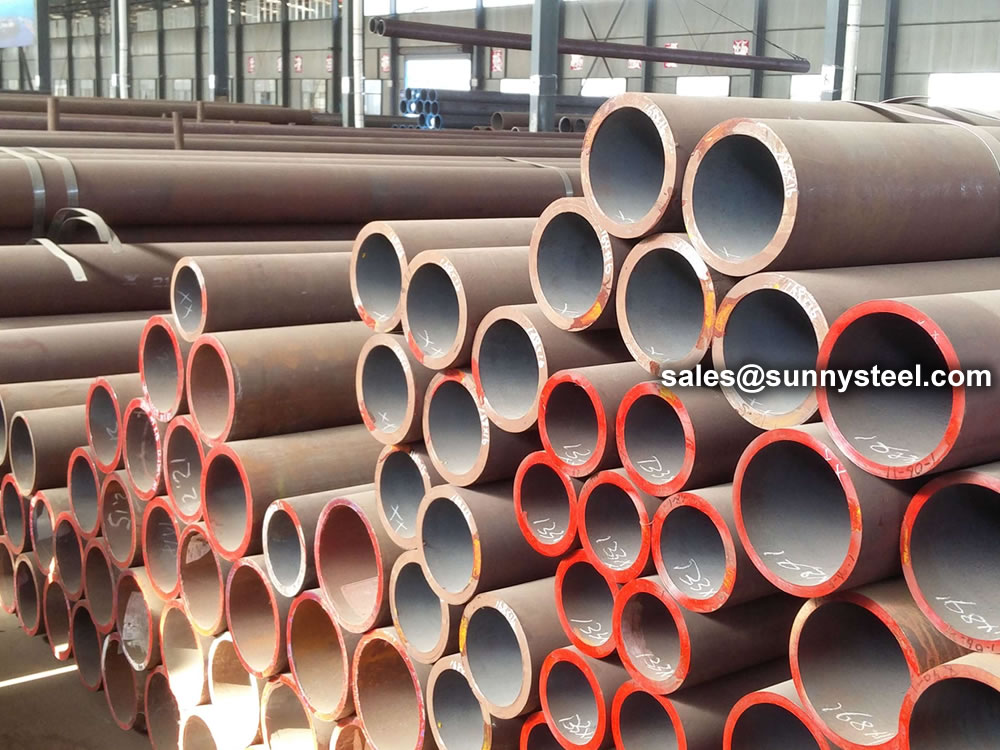
The range of ASTM A335 P22 Seamless Steel Pipes steel pipe sizes that may be examined by each method shall be subjected to the limitations in the scope of the respective practice.
The different mechanical test requirements for pipes, namely, transverse or longitudinal tension test, flattening test, and hardness or bend test are presented.
Both ends of each crate will indicate the order no., heat no., dimensions, weight and bundles or as requested.
| Spec | Grade | O.D. | W.T. | Pcs | Weight T | Length(M) |
|---|---|---|---|---|---|---|
| ASME / ASTM | 10CrMo910/T22/P22 | 16.00 | 3.00 | 168 | 1.301 | 8-12 |
| ASME / ASTM | 10CrMo910/T22/P22 | 19.00 | 2.00 | 81 | 0.498 | 6-8 |
| ASME / ASTM | 10CrMo910/T22/P22 | 21.30 | 5.00 | 72 | 1.144 | 6-9 |
| ASME / ASTM | 10CrMo910/T22/P22 | 25.00 | 2.00 | 136 | 1.242 | 6-8 |
| ASME / ASTM | 10CrMo910/T22/P22 | 26.30 | 5.60 | 121 | 2.884 | 6-9 |
| ASME / ASTM | 10CrMo910/T22/P22 | 27.00 | 7.00 | 89 | 2.475 | 7.5 |
| ASME / ASTM | 10CrMo910/T22/P22 | 33.40 | 5.00 | 76 | 2.113 | 8-10 |
| ASME / ASTM | 10CrMo910/T22/P22 | 34.00 | 0.00 | 96 | 2.874 | 8-10 |
| ASME / ASTM | 10CrMo910/T22/P22 | 38.00 | 4.50 | 2.515 | 1.04 | 6-8 |
| ASME / ASTM | 10CrMo910/T22/P22 | 38.00 | 6.00 | 85 | 3.241 | 6.5-8.5 |
| ASME / ASTM | 10CrMo910/T22/P22 | 42.00 | 5.00 | 130 | 4.776 | 8-12 |
| ASME / ASTM | 10CrMo910/T22/P22 | 42.00 | 5.50 | 89 | 3.594 | 8-12 |
| ASME / ASTM | 10CrMo910/T22/P22 | 42.00 | 6.00 | 76 | 3.26 | 8-10 |
| ASME / ASTM | 10CrMo910/T22/P22 | 42.00 | 7.50 | 92 | 5.427 | 8-10 |
| ASME / ASTM | 10CrMo910/T22/P22 | 42.00 | 9.00 | 79 | 4.662 | 10 |
| ASME / ASTM | 10CrMo910/T22/P22 | 44.50 | 6.50 | 116 | 5.967 | 10 |
| ASME / ASTM | 10CrMo910/T22/P22 | 44.50 | 7.00 | 80 | 4.115 | 10 |
| ASME / ASTM | 10CrMo910/T22/P22 | 44.50 | 7.50 | 233 | 12.843 | 12 |
| ASME / ASTM | 10CrMo910/T22/P22 | 45.00 | 4.00 | 65 | 2.117 | 10 |
| ASME / ASTM | 10CrMo910/T22/P22 | 45.00 | 10.00 | 92 | 6.932 | 9 |
| ASME / ASTM | 10CrMo910/T22/P22 | 48.00 | 6.00 | 124 | 6.207 | 9 |
| ASME / ASTM | 10CrMo910/T22/P22 | 48.00 | 14.00 | 121 | 11.448 | 10-12 |
| ASME / ASTM | 10CrMo910/T22/P22 | 48.30 | 7.14 | 87 | 4.959 | 8-10 |
| ASME / ASTM | 10CrMo910/T22/P22 | 50.80 | 5.60 | 95 | 4.425 | 8-11 |
| ASME / ASTM | 10CrMo910/T22/P22 | 51.00 | 4.50 | 119 | 4.946 | 6-11 |
| ASME / ASTM | 10CrMo910/T22/P22 | 51.00 | 6.50 | 50 | 2.078 | 3.6 |
| ASME / ASTM | 10CrMo910/T22/P22 | 51.00 | 9.00 | 89 | 2.681 | 10-12 |
| ASME / ASTM | 10CrMo910/T22/P22 | 51.00 | 10.00 | 65 | 5.296 | 10-12 |
| ASME / ASTM | 10CrMo910/T22/P22 | 54.00 | 5.00 | 61 | 2.968 | 8 |
| ASME / ASTM | 10CrMo910/T22/P22 | 57.00 | 4.00 | 98 | 4.038 | 6-8 |
| ASME / ASTM | 10CrMo910/T22/P22 | 57.00 | 6.00 | 84 | 5.105 | 6-8 |
| ASME / ASTM | 10CrMo910/T22/P22 | 57.00 | 7.50 | 57 | 3.962 | 8 |
| ASME / ASTM | 10CrMo910/T22/P22 | 57.00 | 8.50 | 91 | 8.079 | 8 |
| ASME / ASTM | 10CrMo910/T22/P22 | 60.00 | 4.66 | 136 | 7.429 | 6-10 |
| ASME / ASTM | 10CrMo910/T22/P22 | 60.00 | 6.00 | 98 | 6.307 | 6-10 |
| ASME / ASTM | 10CrMo910/T22/P22 | 63.00 | 2.56 | 69 | 2.467 | 8-10 |
| ASME / ASTM | 10CrMo910/T22/P22 | 63.00 | 6.50 | 82 | 4.732 | 8-10 |
| ASME / ASTM | 10CrMo910/T22/P22 | 63.00 | 7.50 | 59 | 4.878 | 8-10 |
| ASME / ASTM | 10CrMo910/T22/P22 | 66.00 | 4.00 | 114 | 5.615 | 8 |
| ASME / ASTM | 10CrMo910/T22/P22 | 70.00 | 4.00 | 102 | 5.348 | 6-8 |
| ASME / ASTM | 10CrMo910/T22/P22 | 73.00 | 9.00 | 95 | 10.869 | 6-8 |
| ASME / ASTM | 10CrMo910/T22/P22 | 73.00 | 10.00 | 98 | 11.104 | 8.4 |
| ASME / ASTM | 10CrMo910/T22/P22 | 88.90 | 5.60 | 110 | 10.56 | 8.4 |
| ASME / ASTM | 10CrMo910/T22/P22 | 133.00 | 14.00 | 12 | 3.971 | 8.4 |
| ASME / ASTM | 10CrMo910/T22/P22 | 168.00 | 12.00 | 21 | 7.808 | 6.4 |
| ASME / ASTM | 10CrMo910/T22/P22 | 273.00 | 10.00 | 12 | 6.629 | 8.4 |
| ASME / ASTM | 10CrMo910/T22/P22 | 273.00 | 14.00 | 10 | 7.202 | 8.4 |
| ASME / ASTM | 10CrMo910/T22/P22 | 273.00 | 30.00 | 2 | 2.892 | 8 |
Note:
This inventory is part of the inventory, demand and other models in stock or order materials, please contact us.
10CrMo910 is a low-alloy steel material that is commonly used in high-temperature applications, such as power generation, petrochemical, and chemical processing industries. It is designed to withstand high temperatures and pressures, making it ideal for use in boilers, heat exchangers, and piping systems.
Properties and features of 10CrMo910 include:
In summary, 10CrMo910 is a strong, durable, and high-temperature resistant material that offers excellent corrosion resistance, high-pressure resistance, good weldability, uniform properties, and cost-effectiveness. Its combination of properties makes it an ideal choice for use in various high-temperature and high-pressure applications, especially in the power generation, chemical processing, and oil and gas industries.
ASTM A335 P22 pipe is a low-alloy steel pipe that contains various chemical elements such as chromium and molybdenum. It is designed for high-temperature applications and has excellent corrosion resistance, making it suitable for use in various industries.
In summary, ASTM A335 P22 pipe is a low-alloy steel pipe that offers high-temperature resistance, corrosion resistance, high-pressure resistance, good weldability, uniform properties, and cost-effectiveness. Its combination of properties makes it an ideal choice for use in various applications across multiple industries.
With years of expertise, we provide a diverse array of steel tube processing options. From sawing and machining tube blanks to intricate bending and upsetting operations, we actively assist you throughout your projects.
Our capabilities extend to eccentricity reduction and concentricity enhancement through turning and grinding. We excel in creating complex geometries using processes like rotary swaging and axial forming. Additionally, we offer property modifications via partial heat treatment, ensuring tailored solutions for your specific needs.
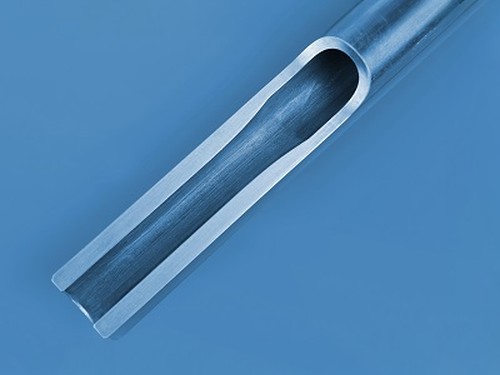
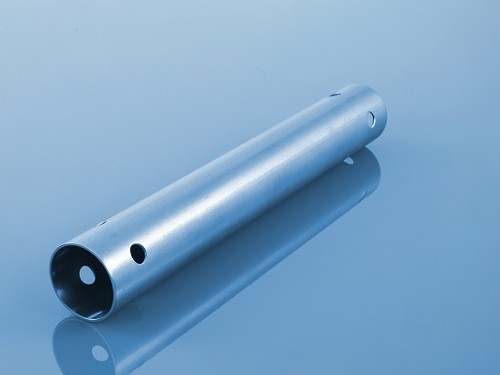
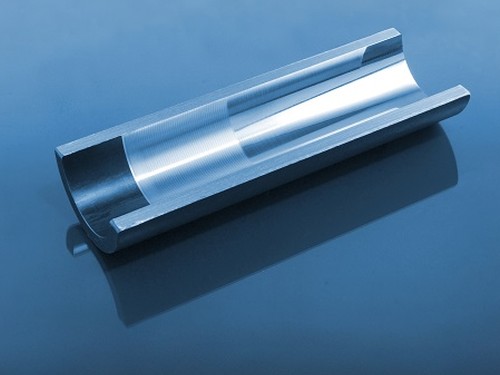
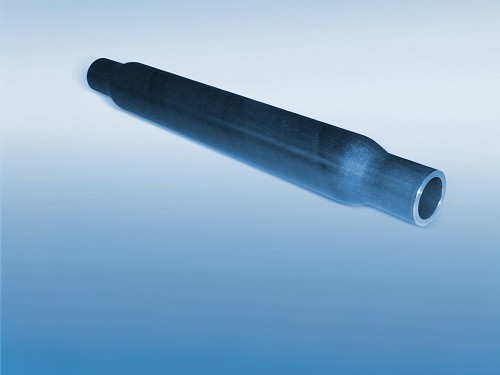

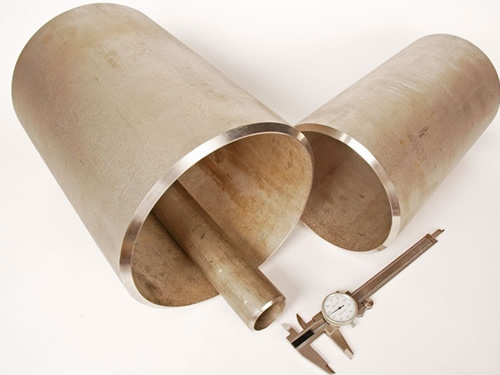
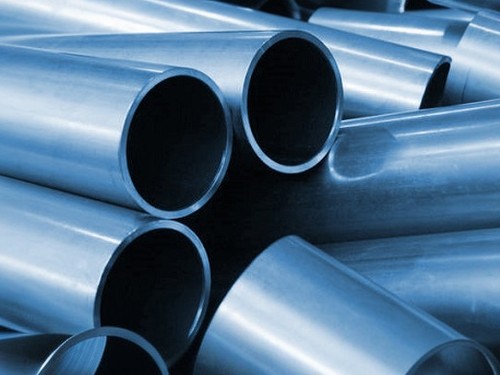
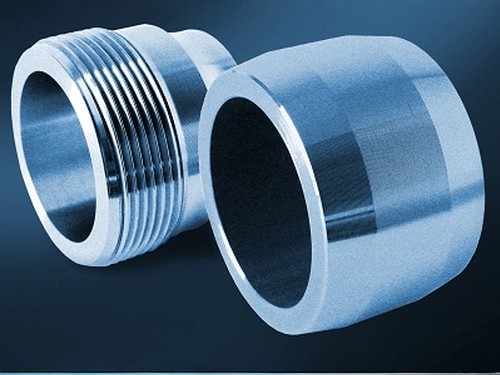
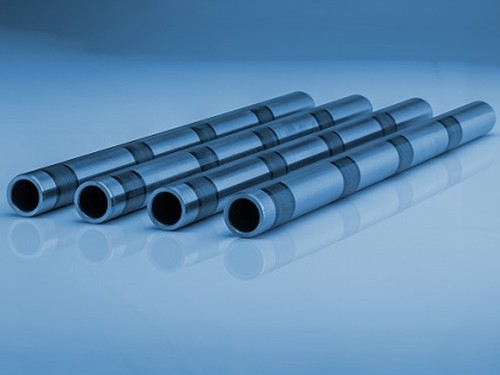
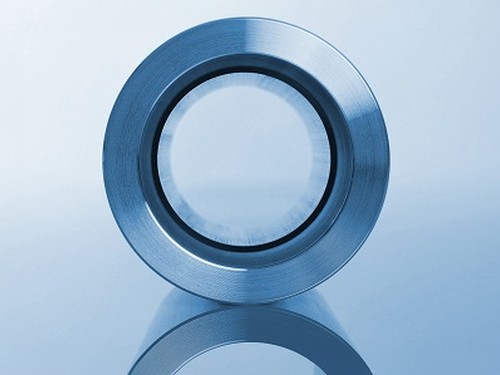
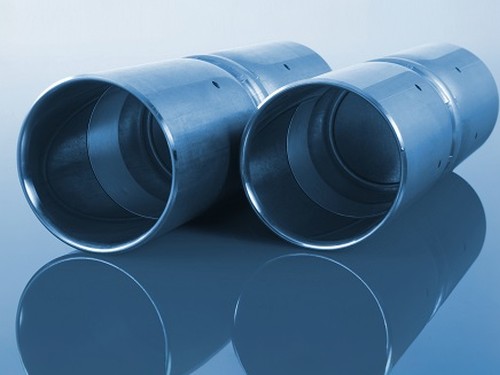

Alloy steel pipes are ideally suitable for chemical, petrochemicals, and other energy-related applications.
The alloy steel pipe adopts high quality carbon steel, alloy structural steel and stainless & heat resisting steel as raw material through hot rolling or cold drawn to be made.
Alloy steel can be used in process area where carbon steel has limitation such as
As an important element of steel products, alloy steel pipe can be divided into seamless steel pipe and welded steel pipe according to the manufacturing technique and tube billet shape.
Here you can see the common alloy steel grade that you will come across.
Why the application of alloy steel pipe is wider than others
There are many kinds of materials used for transport in industrial production. Specifically we will have more choices and it is not limited to the use of alloy steel pipe. But even in the face of more choices, many people tend to choose alloy steel pipe. People make their own choices will have their own reasons. This means the alloy steel pipe application has its own advantages. Compared with transmission lines made of other materials, after it meets the basic application requirements, its quantity is lighter. Then in the practical application of alloy steel pipe, it will have more advantages because of this. Besides its physical characteristic advantage, it also has economic advantages. The wide application of alloy steel pipe is with kinds of reasons. So in practical usage, we can exploit the advantages to the full, in this way can we get more profits in these applications of alloy steel pipe.
The transportation of kinds of gases or liquids in production needs to rely on alloy steel pipe. This shows that the actual role of alloy steel pipe application is important. High temperature resistant and low temperature resistant is the tolerance of temperature. In the practical application of alloy steel pipe, there will be many materials need to be transported. However their temperatures are not the same. So this can be the basic requirement to alloy steel pipe. It needs more corrosion resistance. Corrosion resistant material is the best material during transporting, because it is corrosion resistant. So it can be used in more occasions. And it is definitely very convenient for users.
Can be 100% recycled, environmentally friendly, energy-saving, resource conservation, national strategy, national policy to encourage the expansion of the field of application of high-pressure alloy pipe. Of alloy steel pipe total consumption accounted steel in the proportion is only half of the developed countries, to expand the field of use of the alloy steel pipe to provide a wider space for the development of the industry. The future needs of the average annual growth of China’s high-pressure alloy steel pipe long products up to 10-12%.
Alloy Steel pipe contains substantial quantities of elements other than carbon such as nickel, chromium, silicon, manganese, tungsten, molybdenum, vanadium and limited amounts of other commonly accepted elements such as manganese, sulfur, silicon, and phosphorous.
Our team of experienced sales specialists proudly partners with gas and chemical processors, power generation plants, oil refineries, and related industries to offer piping components and value-added services.
The biggest advantages of alloy steel pipe can be 100% recycled, environmentally friendly, energy-saving, resource conservation, national strategy, national policy to encourage the expansion of the field of application of high-pressure alloy pipe. Of alloy tube total consumption accounted steel in the proportion is only half of the developed countries, to expand the field of use of the alloy tube to provide a wider space for the development of the industry. According to the Chinese Special Steel Association alloy pipe Branch Expert Group, the future needs of the average annual growth of China’s high-pressure alloy pipe long products up to 10-12%.
Chemical composition inspection, mechanical properties test(tensile strength,yield strength, elongation, flaring, flattening, bending, hardness, impact test), surface and dimension test,no-destructive test, hydrostatic test.
identification of the chemical composition of the metal used to manufacture the fitting. Uses PMI sensors, including X-ray fluorescence or optical emission spectrometry.
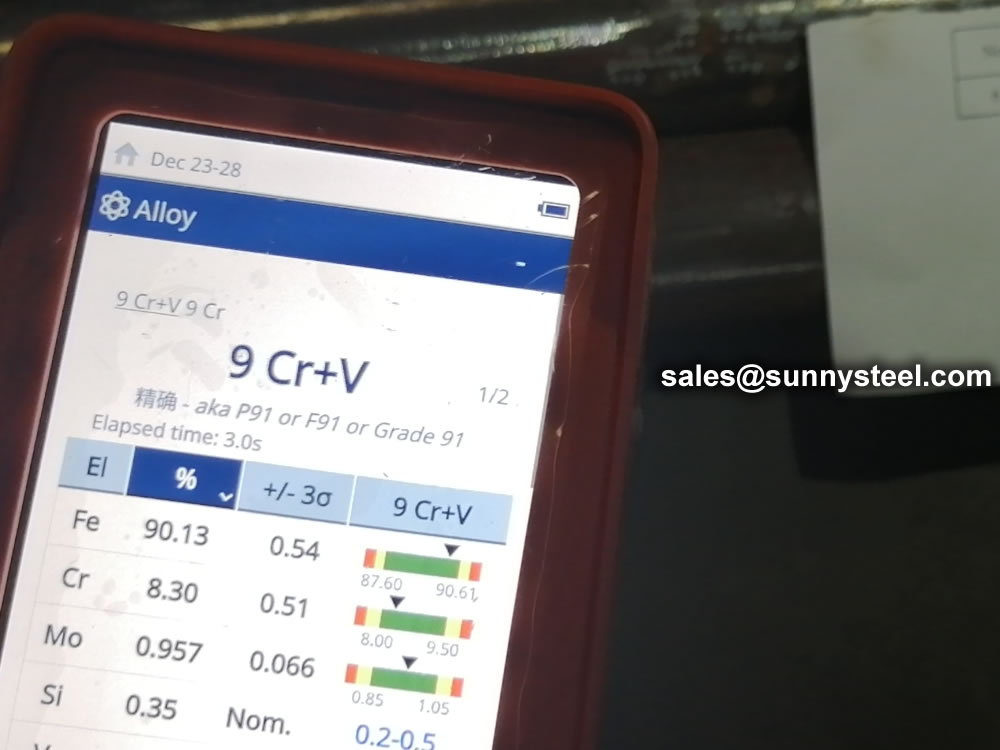
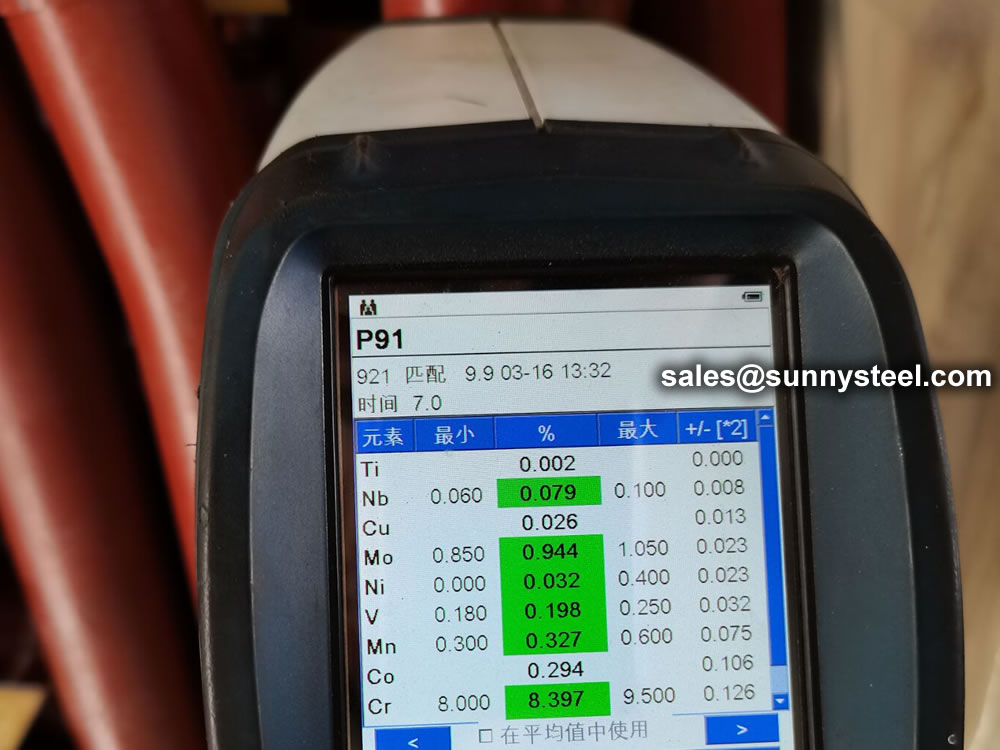
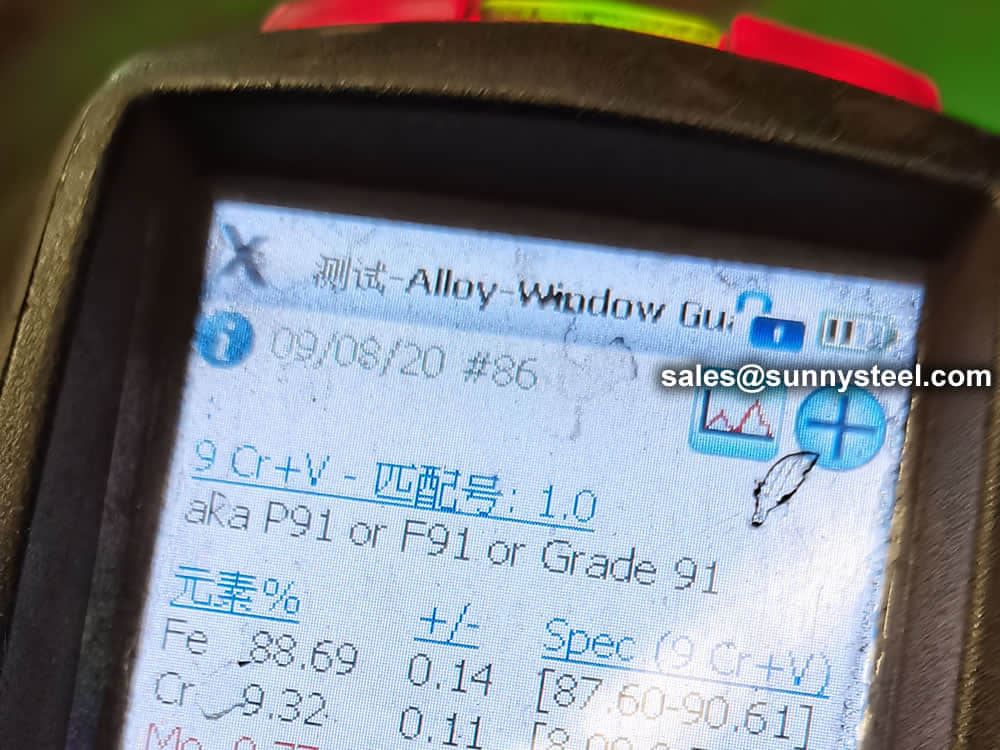
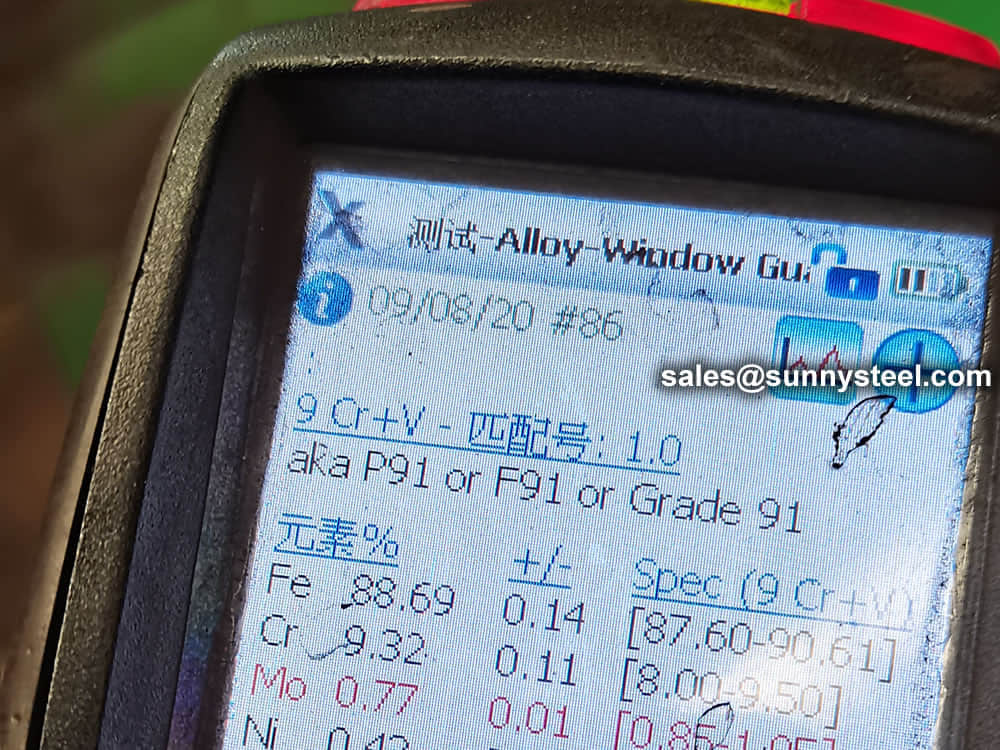
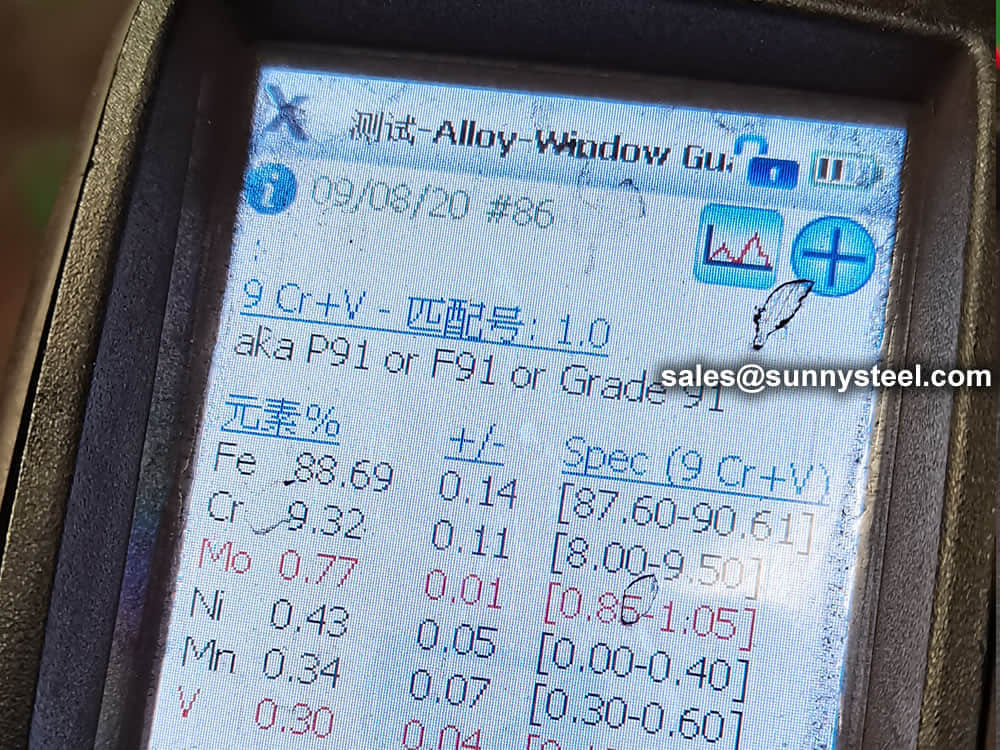

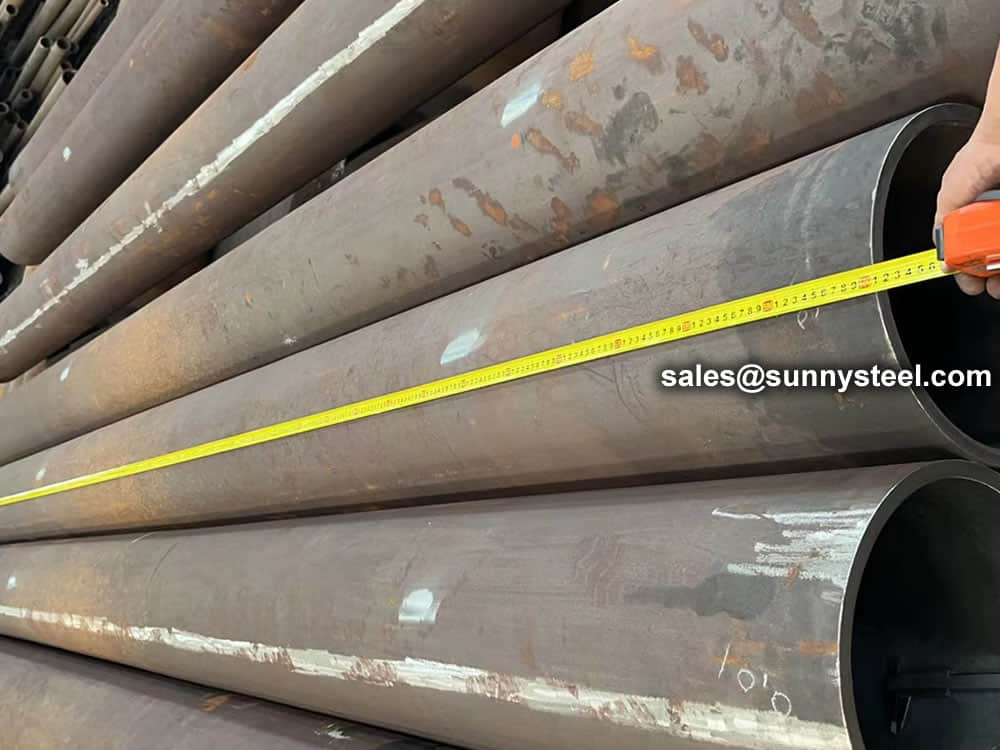
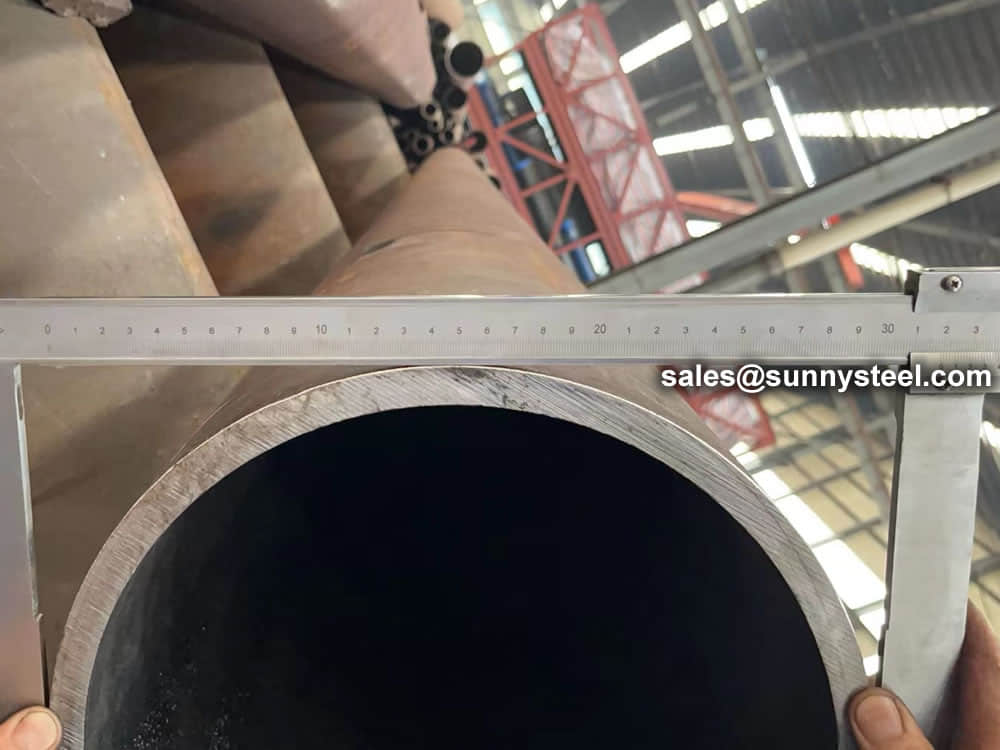
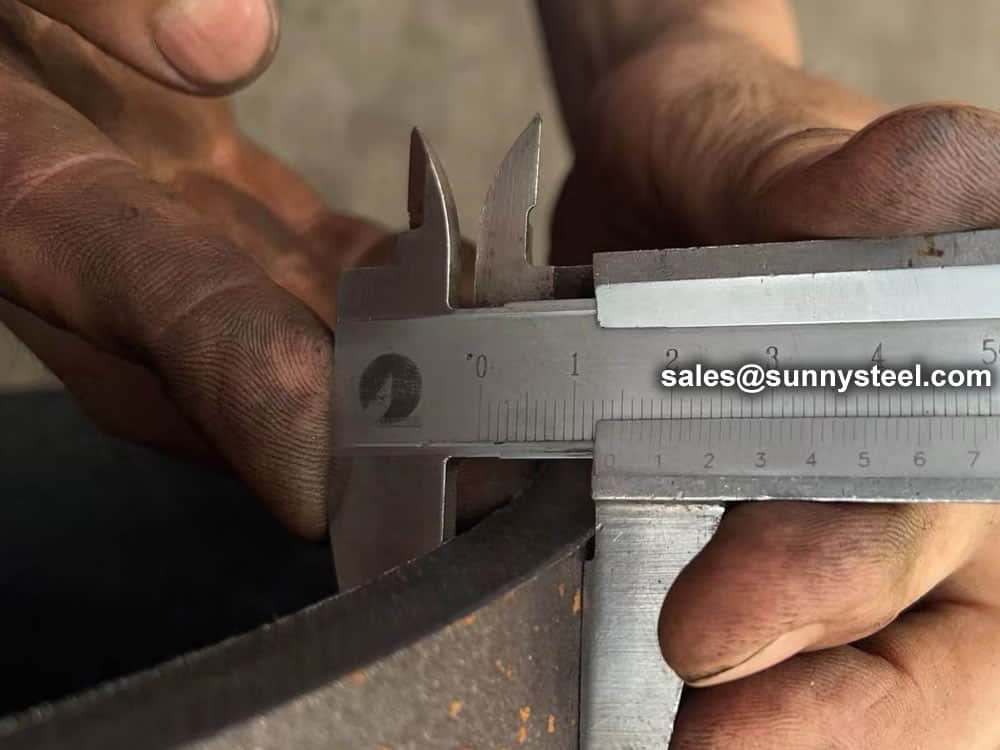
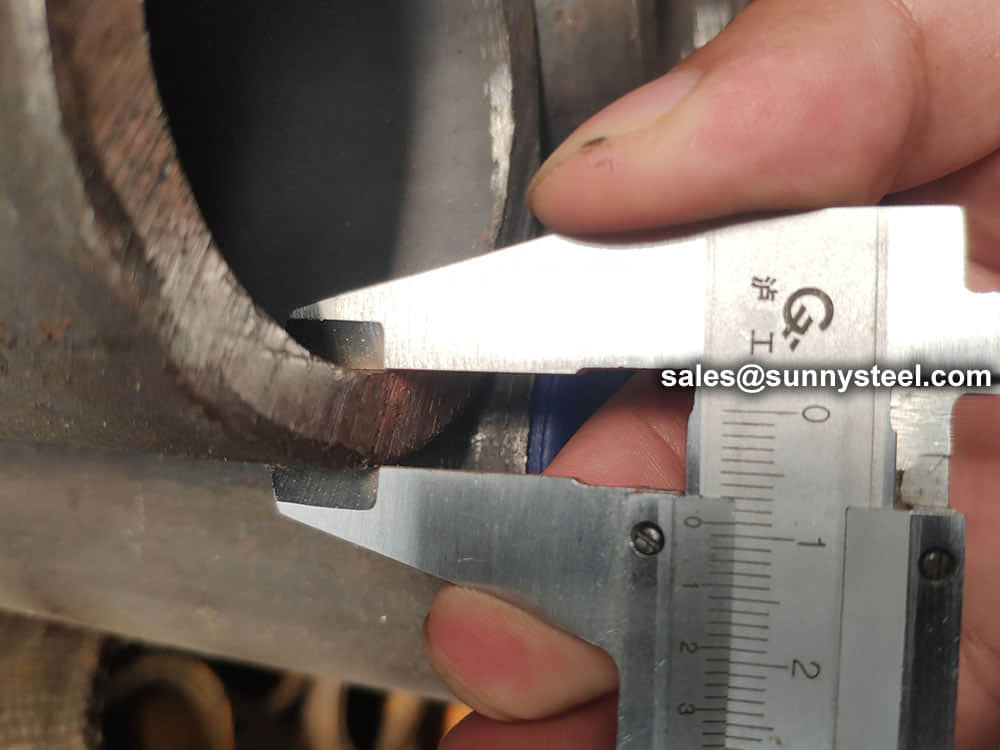
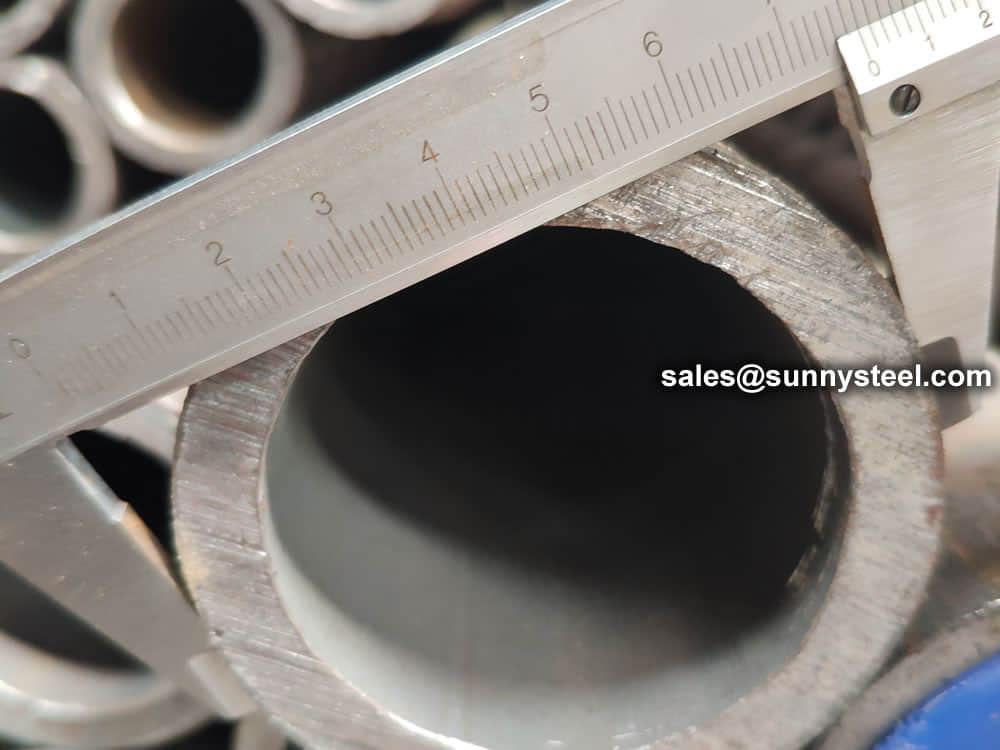
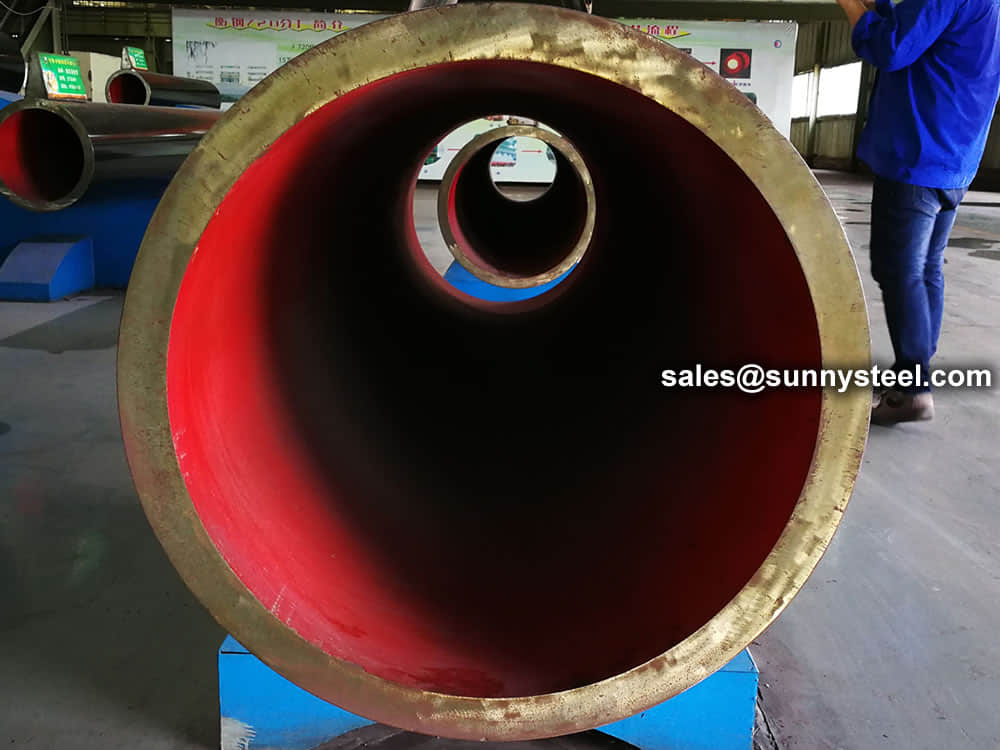
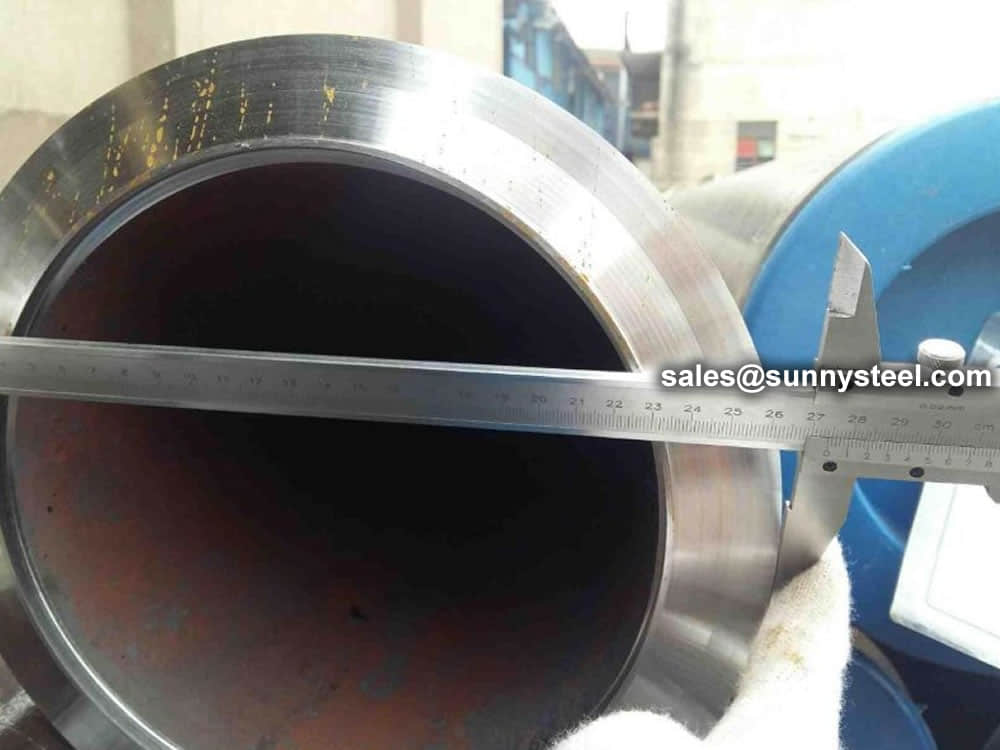
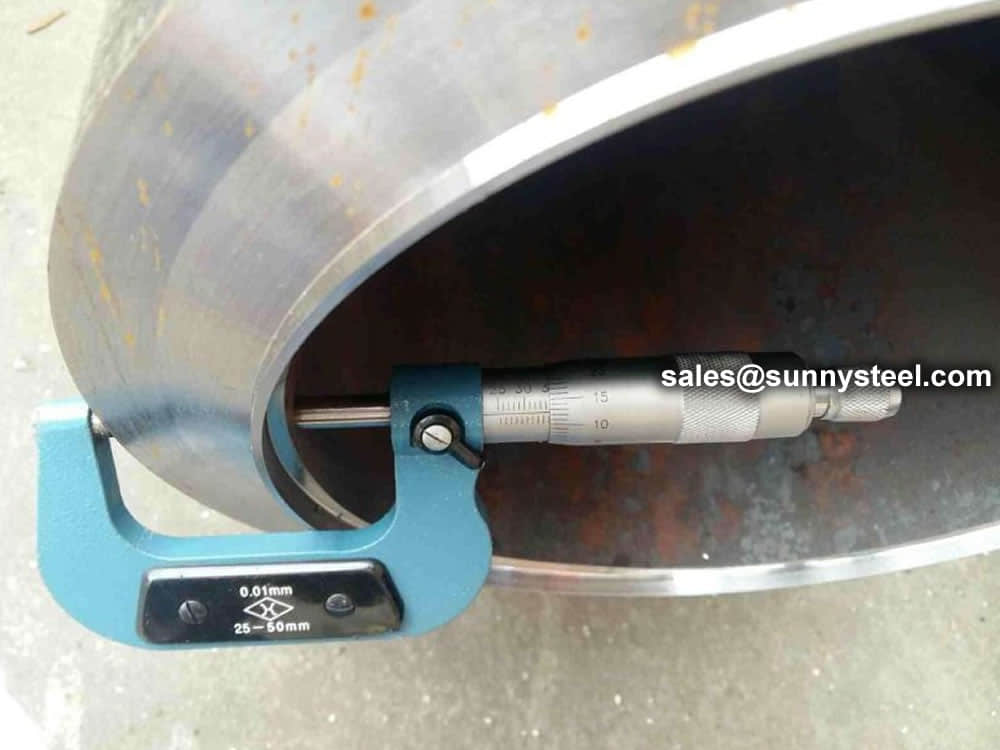
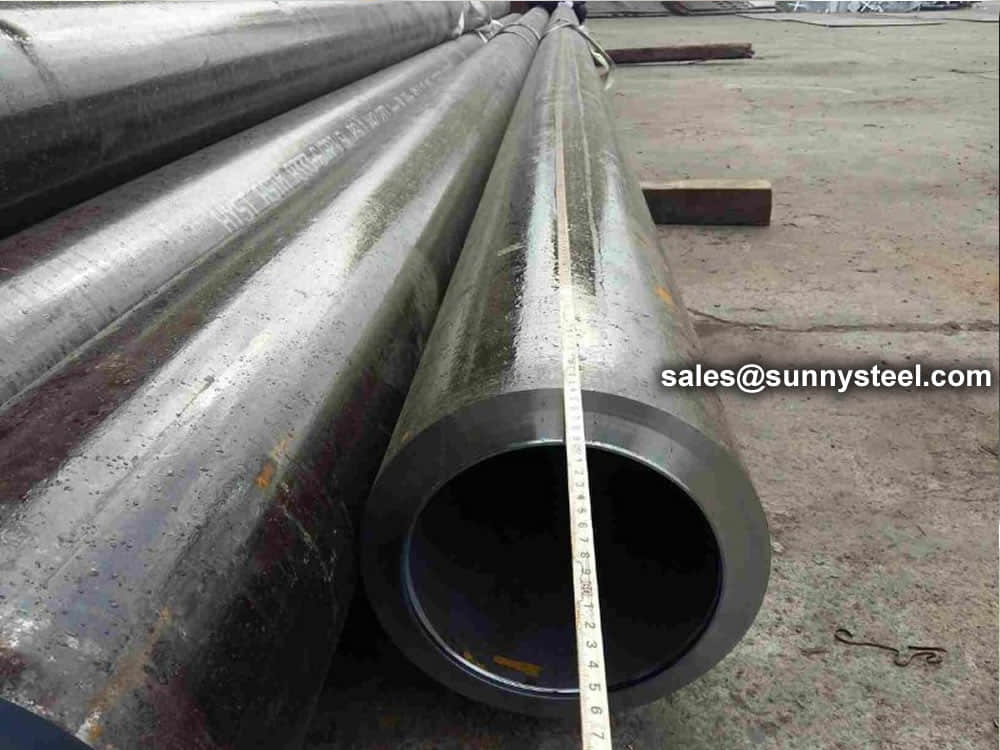
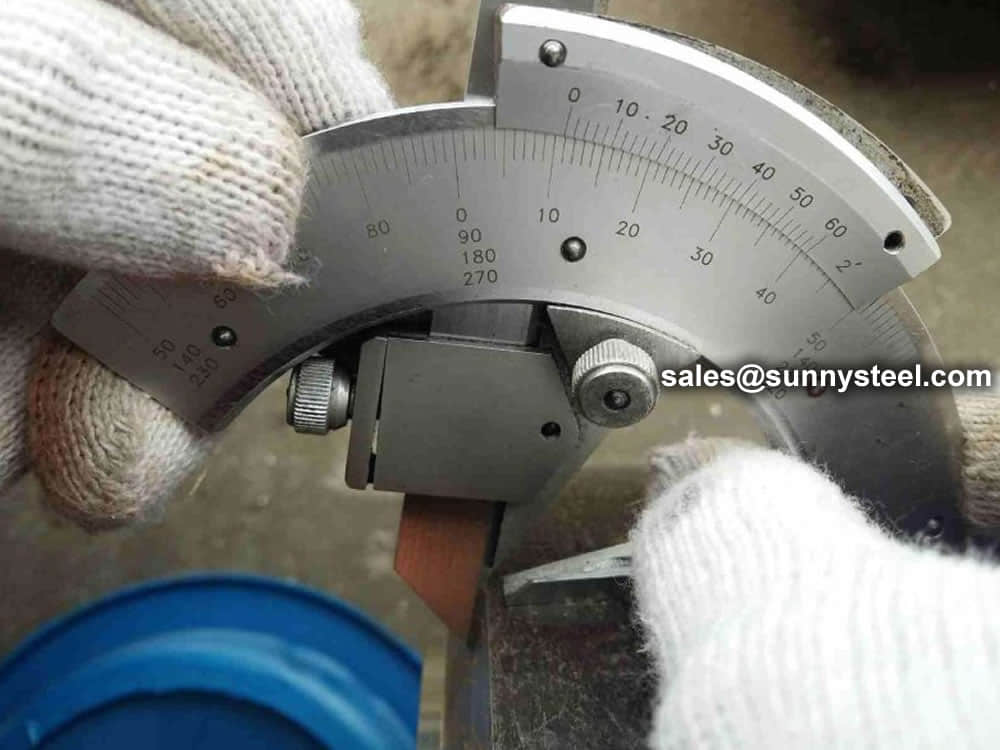
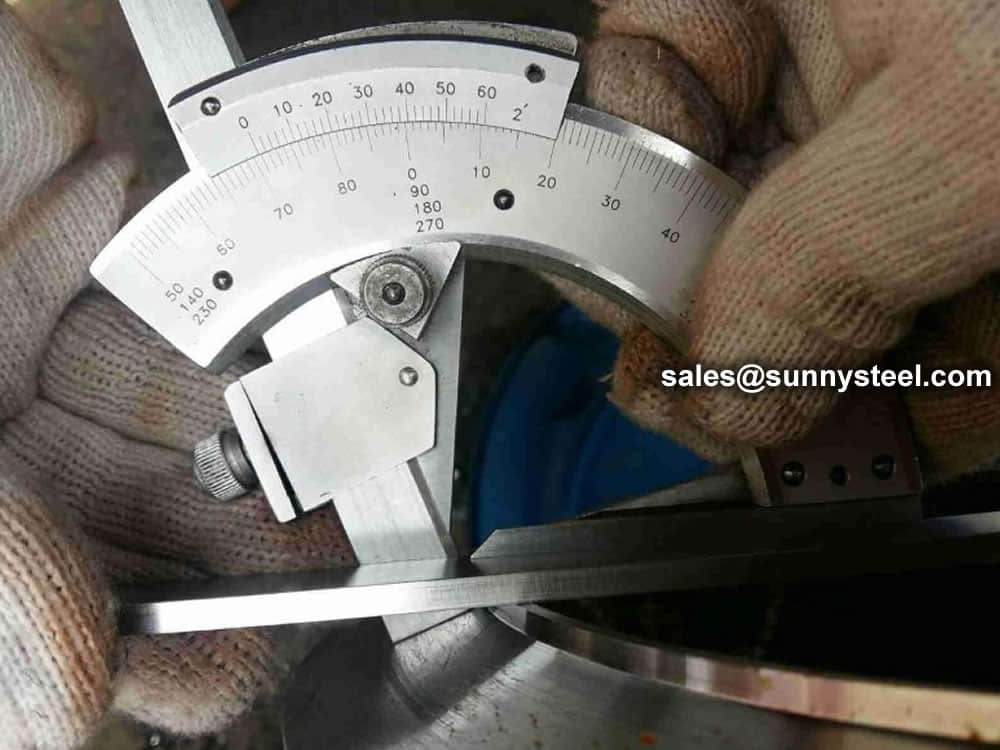
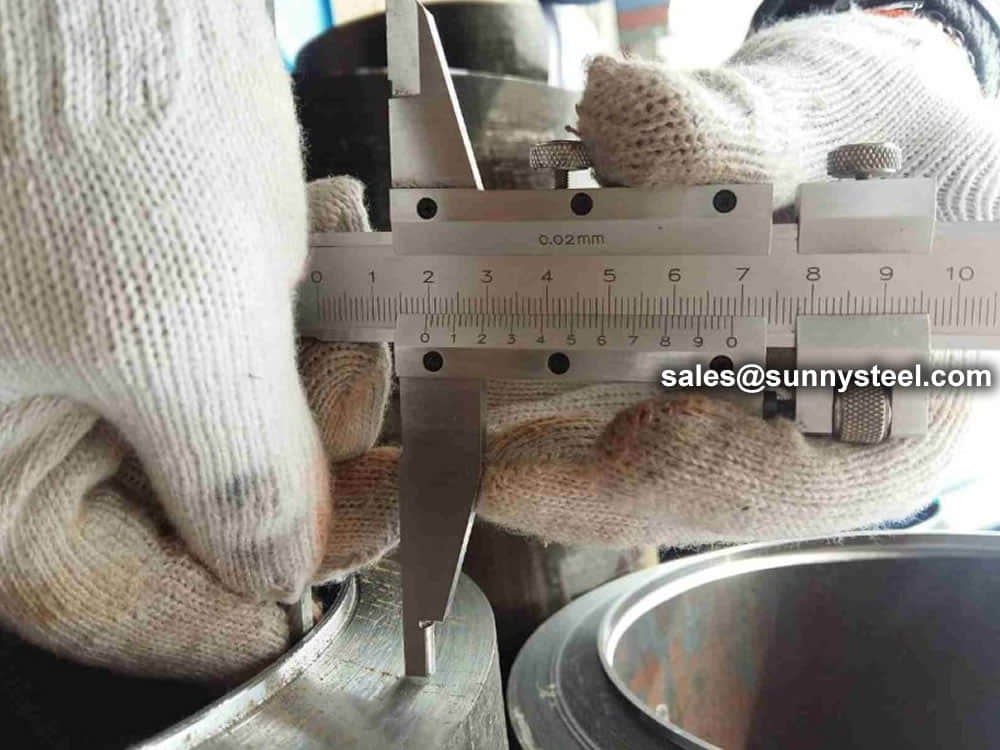
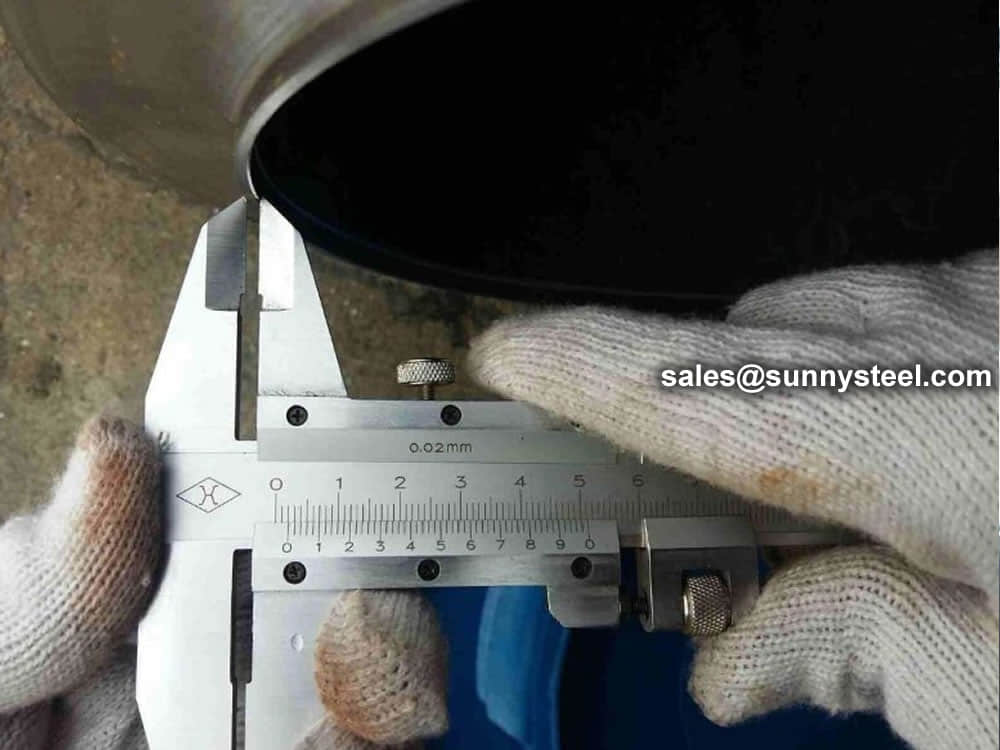
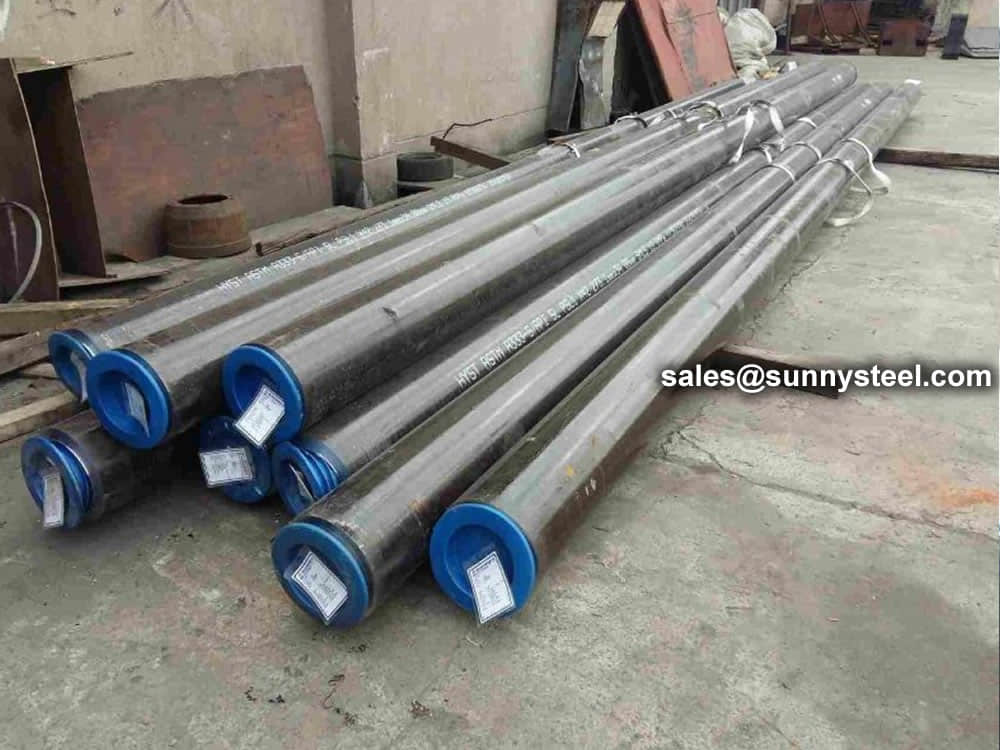
Steel pipe delivery status(condition): cold / hard (BK), cold / soft (BKW), after cold stress relief annealing (BKS), annealing (GBK), normalized (NBK).
| Term | Symbol | Explanation |
|---|---|---|
| Cold-finished/hard (cold-finished as-drawn) | BK | No heat treatment after the last cold-forming process. The tubes therefore have only low deformability. |
| Cold-finished/soft (lightly cold-worked) | BKW | After the last heat treatment there is a light finishing pass (cold drawing) With proper subsequent processing, the tube can be cold-formed (e.g. bent, expanded) within certain limits. |
| Annealed | GBK | After the final cold-forming process the tubes are annealed in a controlled atmosphere or under vacuum. |
| Normalized | NBK | The tubes are annealed above the upper transformation point in a controlled atmosphere or under vacuum. |
The general cold strip mills, volume should go through continuous annealing (CAPL unit) to eliminate cold hardening and rolling stress, or batch annealing reach the mechanical properties of the corresponding standard specifies. Cold rolled steel surface quality, appearance, dimensional accuracy better than hot-rolled plate, and right-rolled thin product thickness is about 0.18mm, so the majority of users favor.
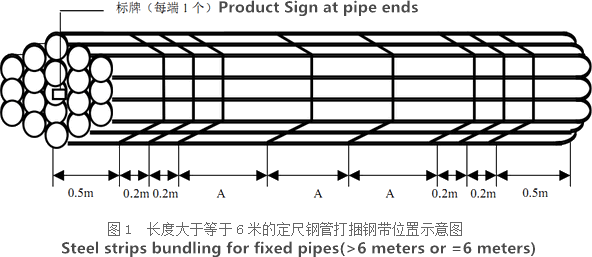
Cold rolled steel coil substrate products deep processing of high value-added products. Such as electro-galvanized, hot dip galvanized, electro-galvanized fingerprint resistant, painted steel roll damping composite steel, PVC laminating steel plates, etc., so that the excellent quality of these products has a beautiful, high resistance to corrosion, has been widely used.
Cold rolled steel coil finishing after annealing, cut the head, tail, trimming, flattening, smooth, heavy volume, or longitudinal clipboard. Cold-rolled products are widely used in automobile manufacturing, household electrical appliances, instruments, switches, buildings, office furniture and other industries. Steel plate strapping package weight of 3 to 5 tons. Flat sub-volume typically 3 to 10 tons / volume. Coil diameter 6m.
Bare packing/bundle packing/crate packing/wooden protection at the both sides of tubes and suitably protected for sea-worthly delivery or as requested.
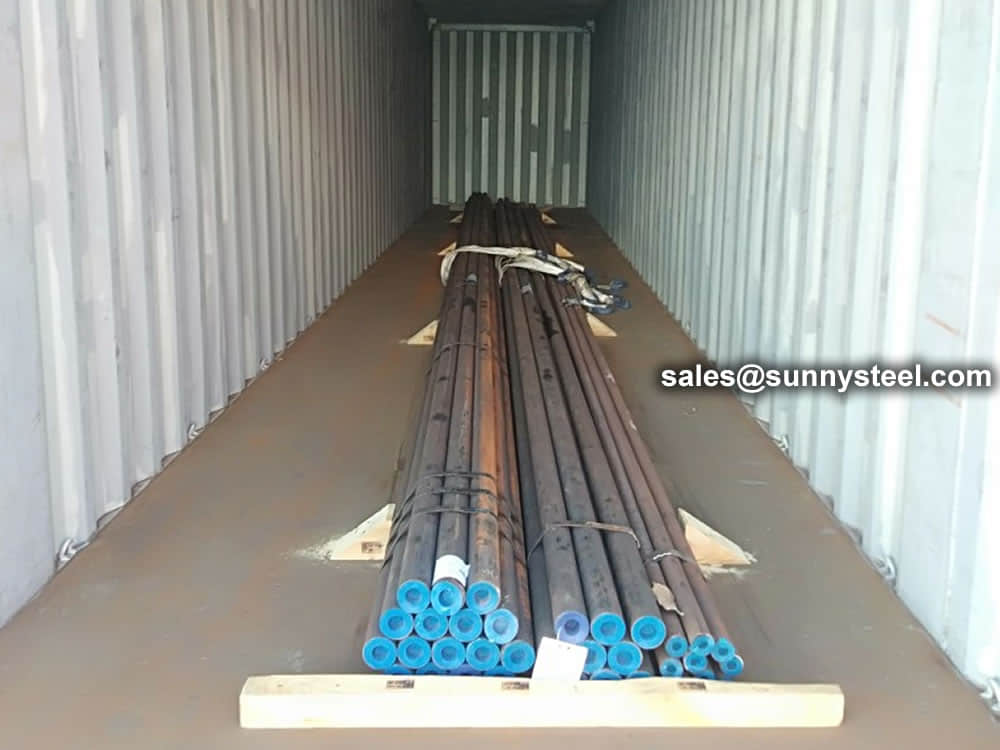
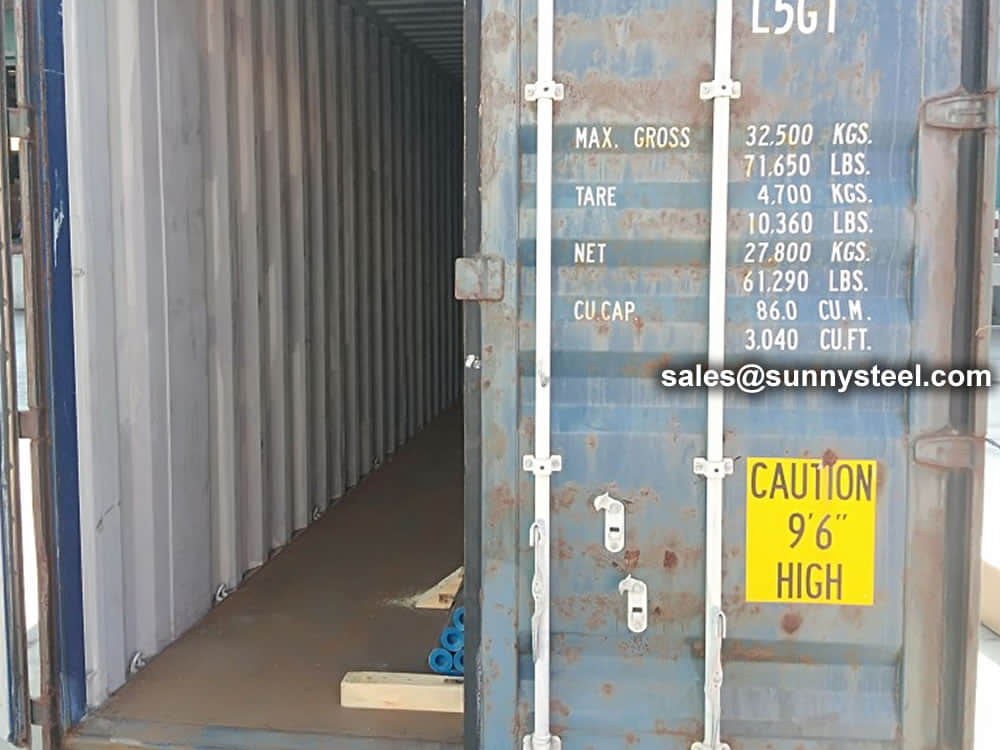
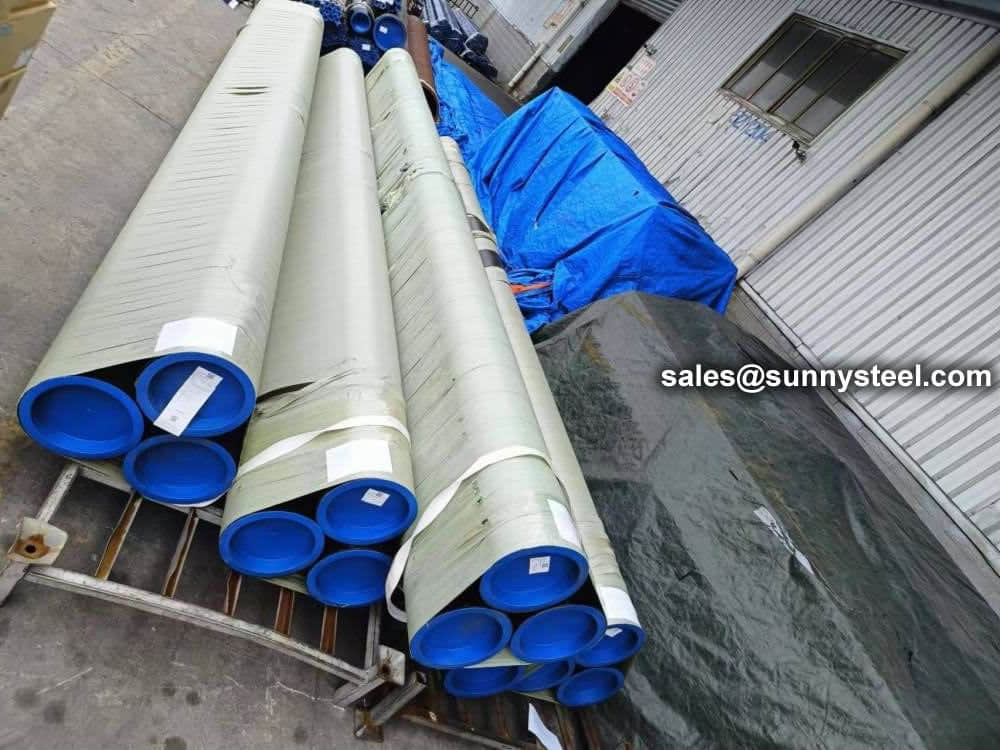
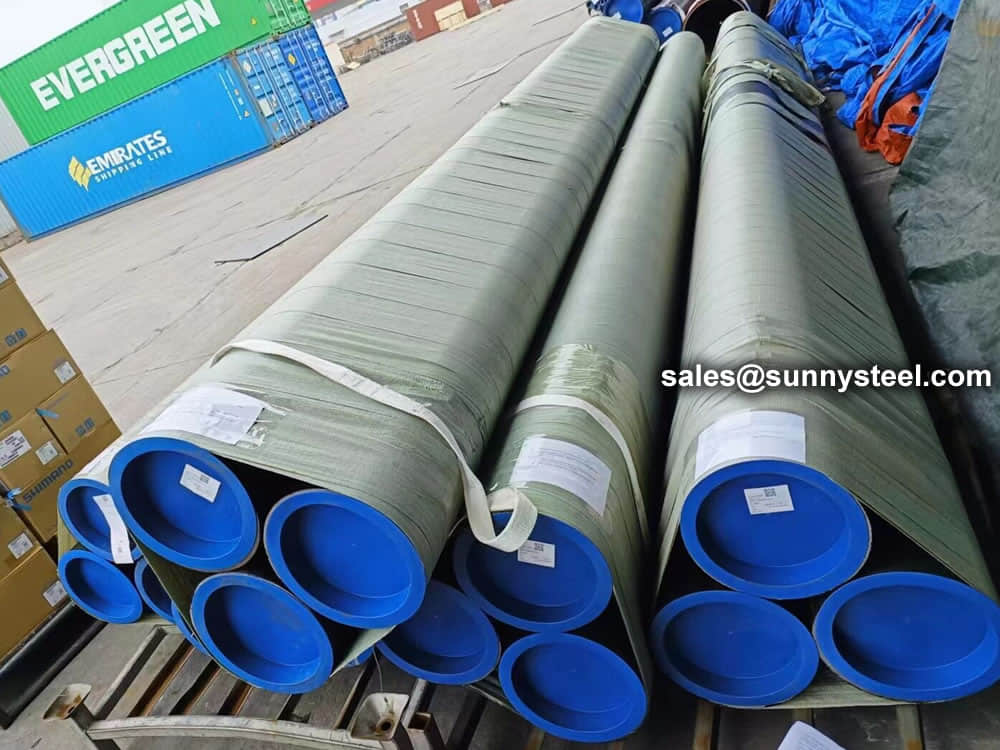
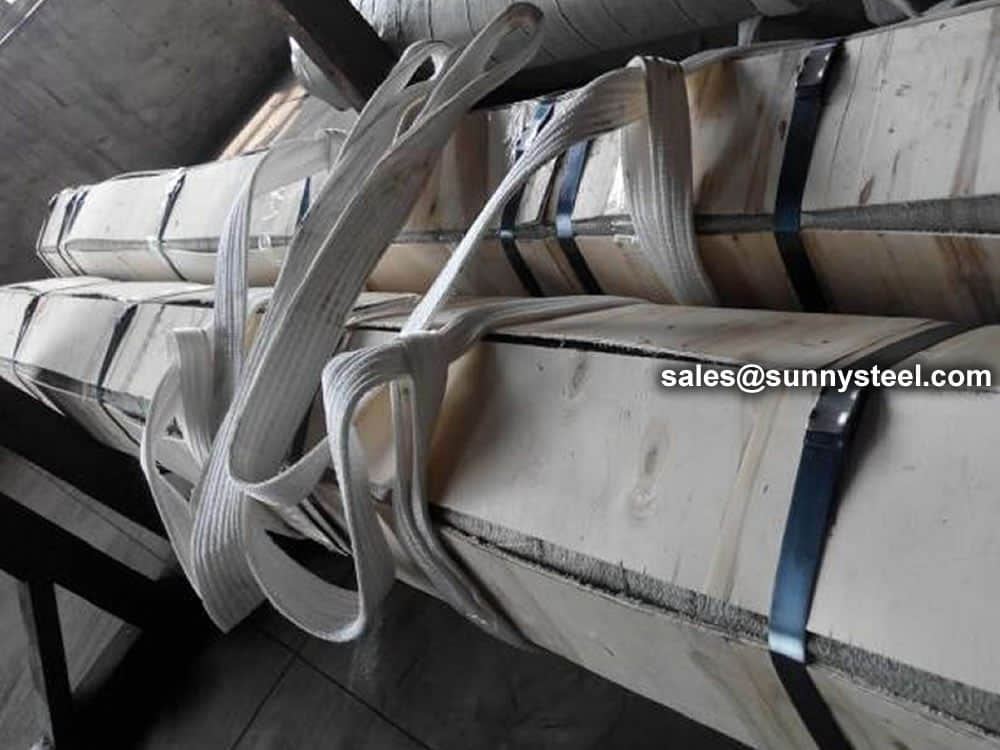
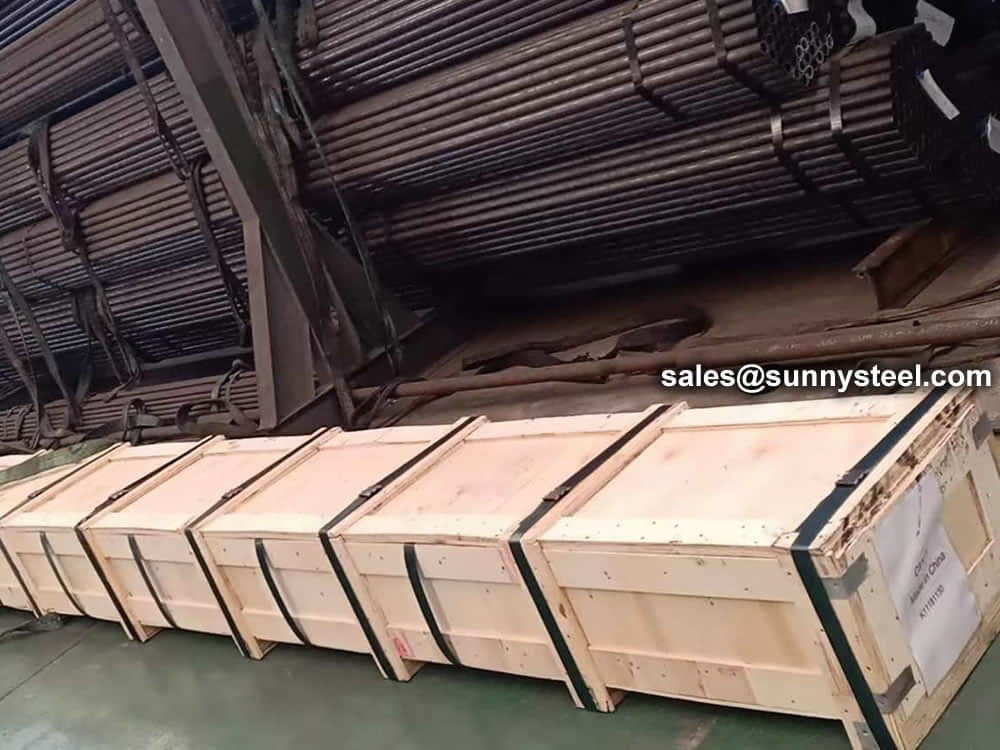
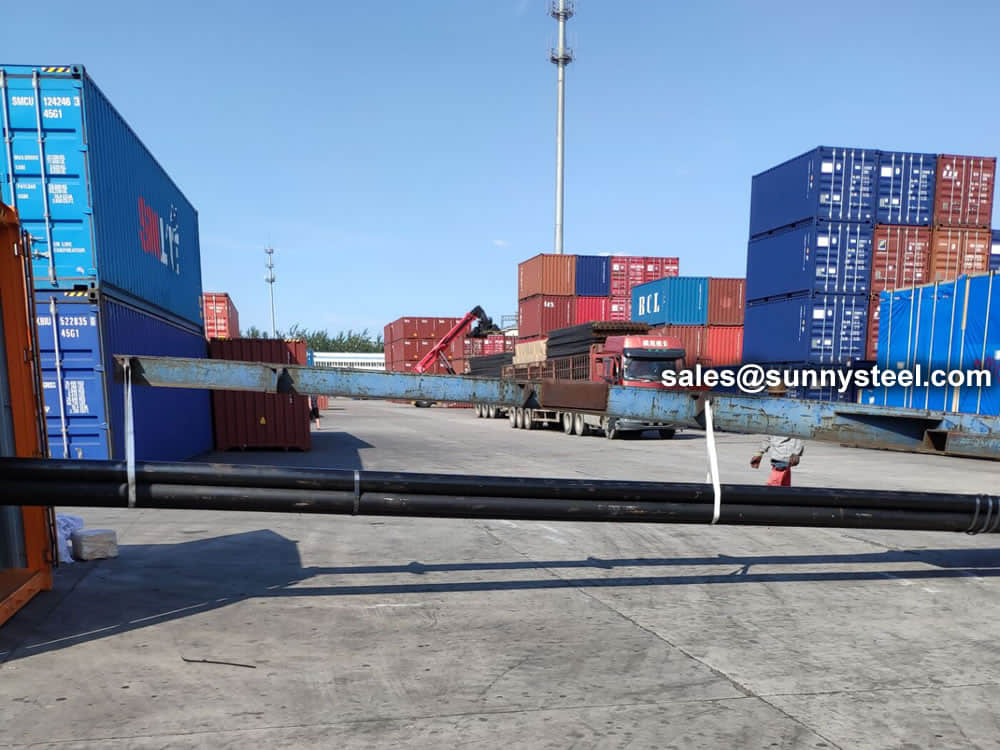
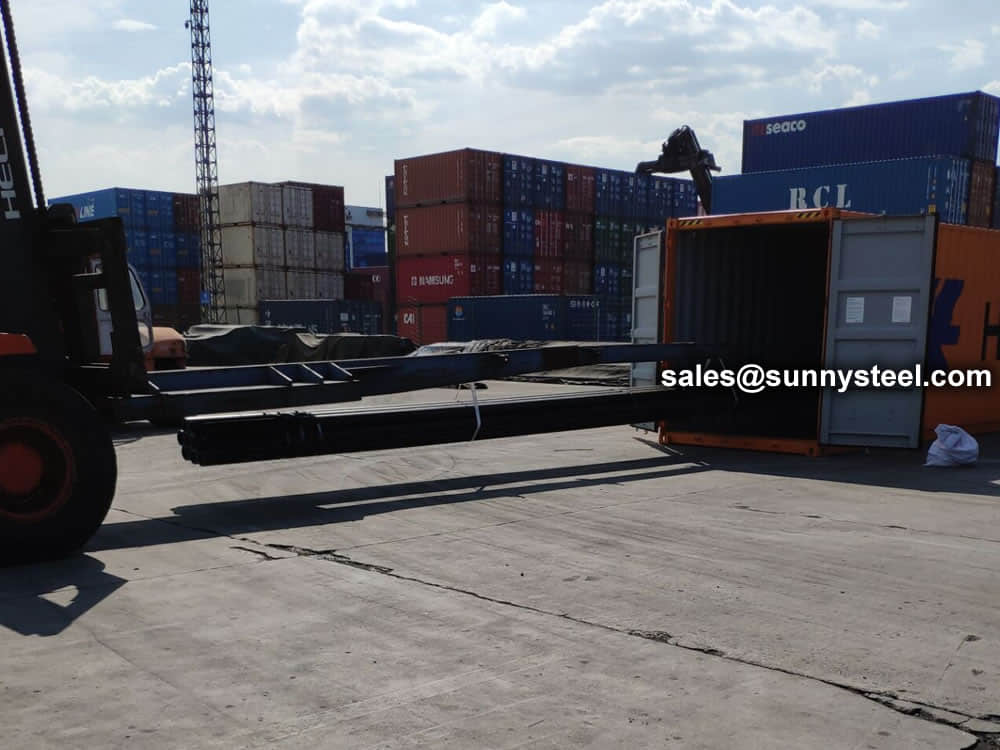
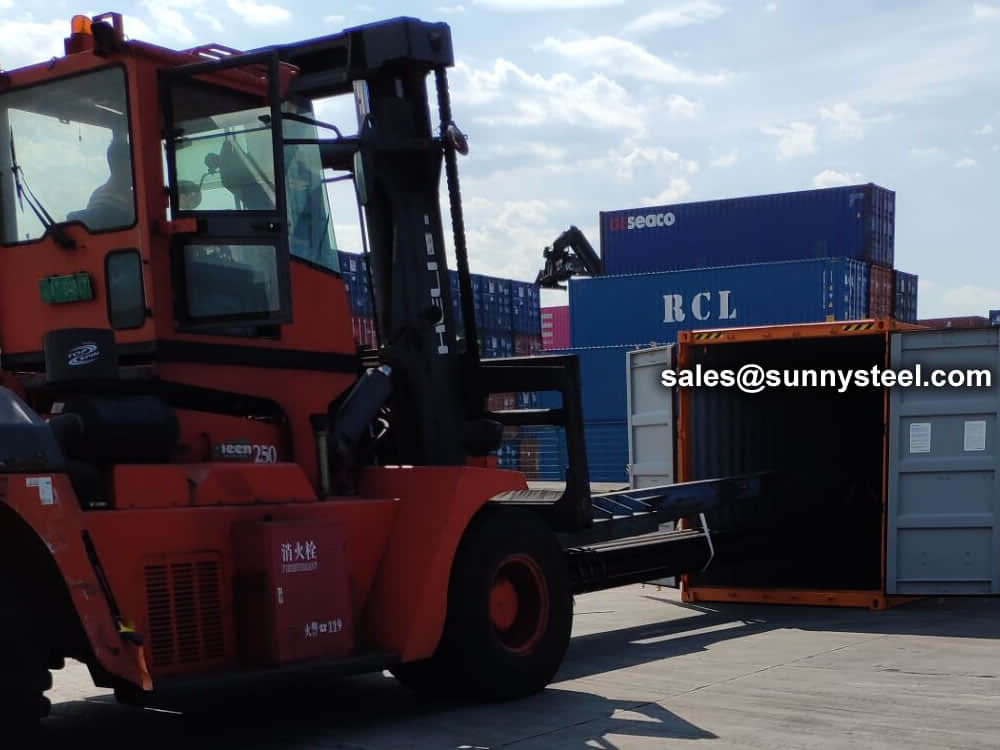
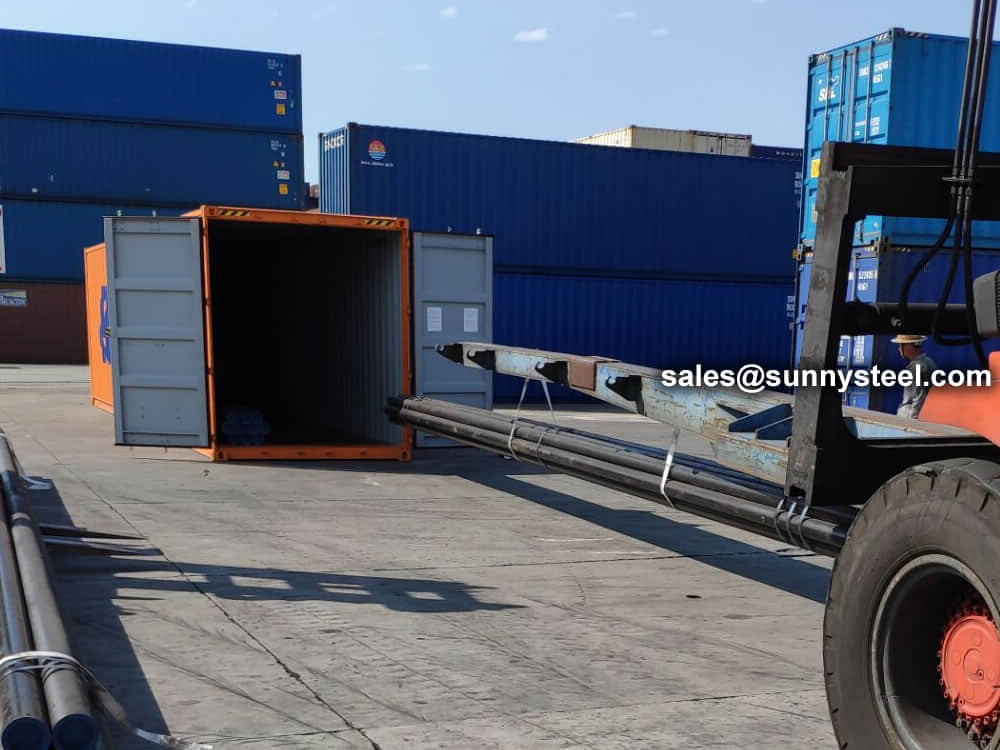
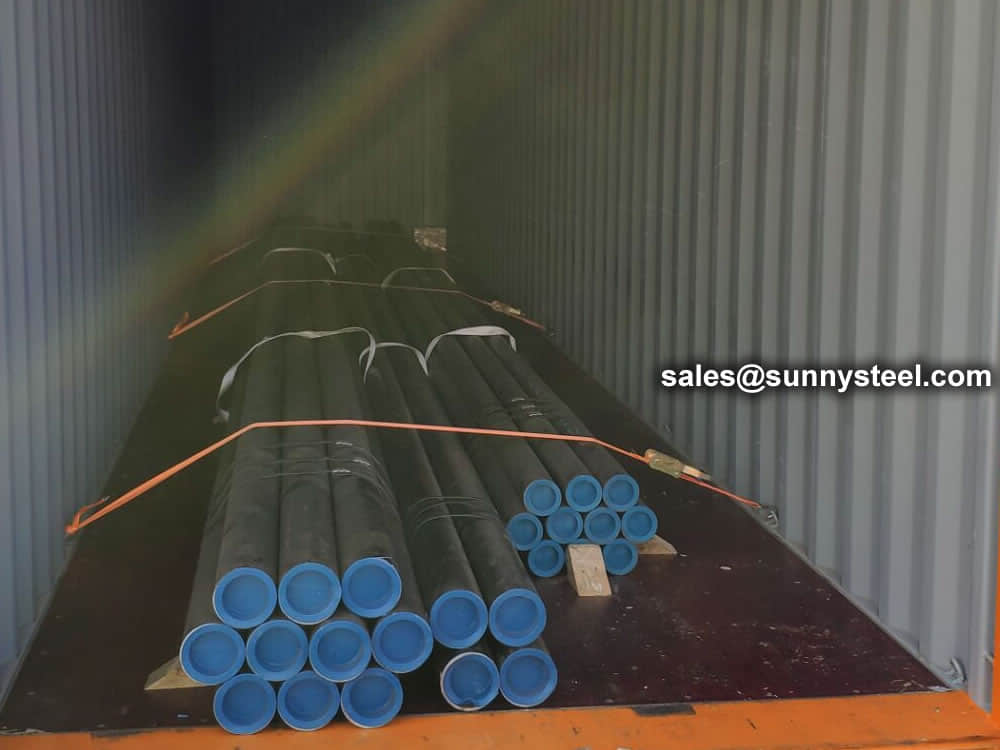
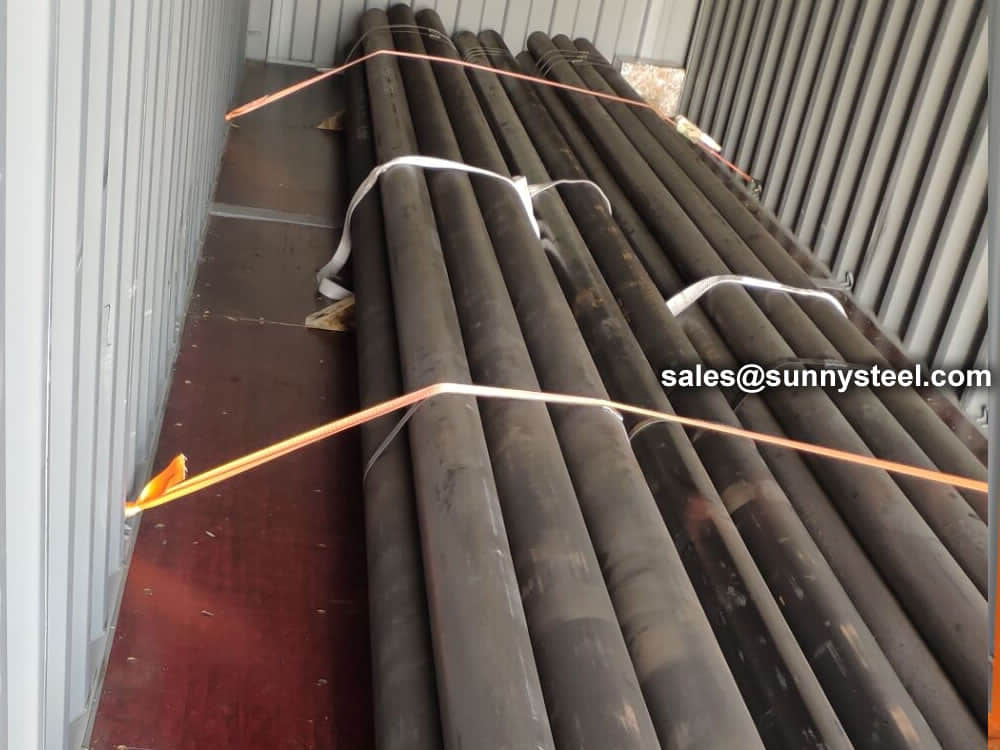
There are probably hundreds of different methods for packing a pipe, and most of them have merit, but there are two principles that are vital for any method to work prevent rusting and Sea transportation security.
Our packing can meet any needs of the customers.
Our team of experienced sales specialists proudly partners with gas and chemical processors, power generation plants, oil refineries, and related industries to offer piping components and value-added services.
Alloy steels are made by combining carbon steel with one or several alloying elements, such as manganese, silicon, nickel, titanium, copper, chromium and aluminum. These metals are added to produce specific properties that are not found in regular carbon steel. The elements are added in varying proportions (or combinations) making the material take on different aspects such as increased hardness, increased corrosion resistance, increased strength, improved formability (ductility); the weldability can also change.
Commonly used alloying elements and their effects are listed in the table given below.
| Alloying Elements | Effect on the Properties |
|---|---|
| Chromium | Increases Resistance to corrosion and oxidation. Increases hardenability and wear resistance. Increases high temperature strength. |
| Nickel | Increases hardenability. Improves toughness. Increases impact strength at low temperatures. |
| Molybdenum | Increases hardenability, high temperature hardness, and wear resistance. Enhances the effects of other alloying elements. Eliminate temper brittleness in steels. Increases high temperature strength. |
| Manganese | Increases hardenability. Combines with sulfur to reduce its adverse effects. |
| Vanadium | Increases hardenability, high temperature hardness, and wear resistance. Improves fatigue resistance. |
| Titanium | Strongest carbide former. Added to stainless steel to prevent precipitation of chromium carbide. |
| Silicon | Removes oxygen in steel making. Improves toughness. Increases hardness ability |
| Boron | Increases hardenability. Produces fine grain size. |
| Aluminum | Forms nitride in nitriding steels. Produces fine grain size in casting. Removes oxygen in steel melting. |
| Cobalt | Increases heat and wear resistance. |
| Tungsten | Increases hardness at elevated temperatures. Refines grain size. |
